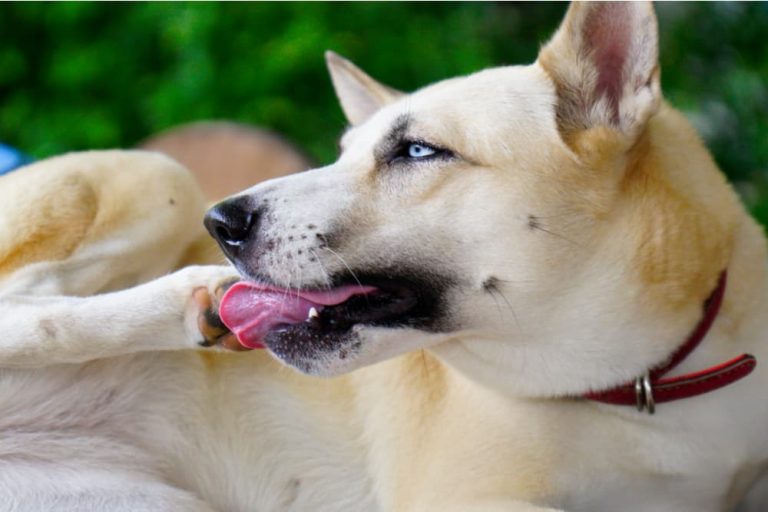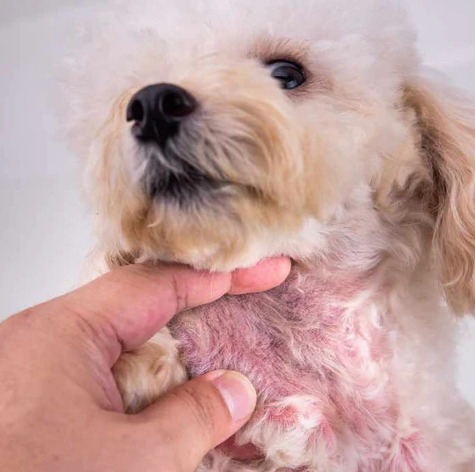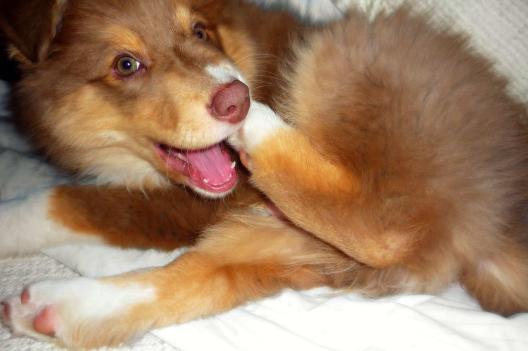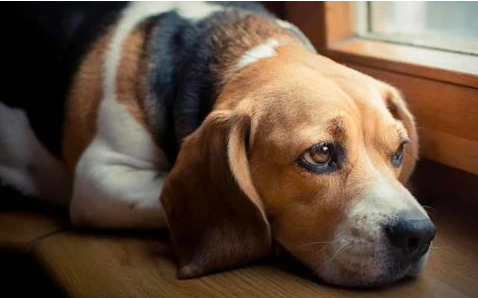
Paw-licking is a normal self-cleaning behavior for dogs. They might chew on their paws and nails because of healthy grooming, pain, inflammation, discomfort, allergies and more. When you spot your dog licking or chewing their paws, it is usually indicative of something bothering them around their paws.
Learn More About Why Dogs Bite Their Paws and Nails
Allergies

Allergies can occur due to fleas, seasonal changes, dust, food…Allergies can be accompanied by red and itchy skin and paws. You may notice your dog licking its paws frequently and repeatedly to relieve the pain.
Healthy Grooming

A dog biting her nail is sometimes part of a natural self-grooming process. When a dog’s nails get too long, it can make regular daily activities more difficult.
Injury
Dogs do not have protective shoes and can easily injure their paws. If your dog is chewing his paw due to an injury, he will typically be focused on one foot in particular.
Pain
This is often seen in dogs with arthritis but can occur with any painful condition involving the leg or paw.
Anxiety or Boredom

Chewing and biting the nails can be a sign of anxiety or boredom in your furry friend. You may also notice your dog becomes agitated whenever you leave them alone.
Parasites
Certain parasites can cause dogs to chew on their paws excessively, including fleas, mites and ticks.
It Is Essential for You as an Owner to Stop Your Dog From Doing So
Allergies: If your dog has an infection or allergy, it may require a vet visit. A vet may prescribe shots or steroids to help ease symptoms.
Healthy Grooming: Most dogs will lick and chew their feet to clean themselves, especially after walks or play sessions outside.
Injury: Carefully check your dog’s paw. In most cases, paw injuries are not serious, and with proper wound care and pain medications, your dog will recover just fine. But if you notice a more significant injury, it is more important to take your dog to an emergency vet.
Pain: Don’t wait to call the vet. Your dog is unable to walk if the area is very swollen.
Anxiety or Boredom: If your dog has plenty of toys to play with and chew on, they probably won’t start chewing their paws. Dog separation anxiety is a chronic condition. Try to spend more time with your pet.
Parasites: Your dog may require immediate medical attention. Veterinarians should be able to identify any underlying causes and provide appropriate remedies.

